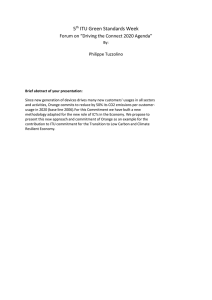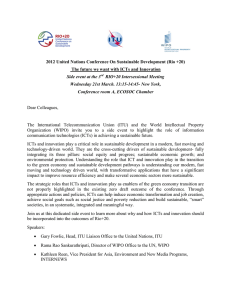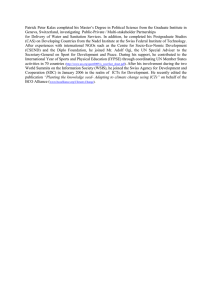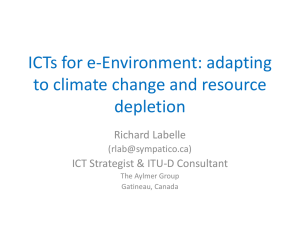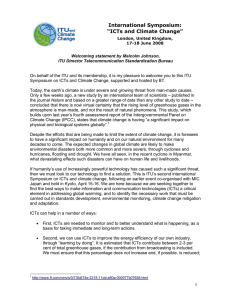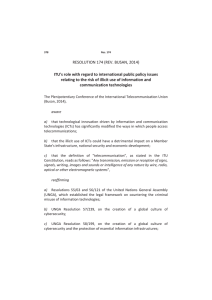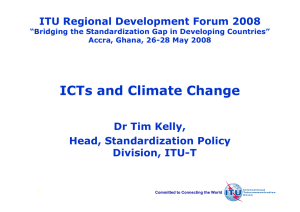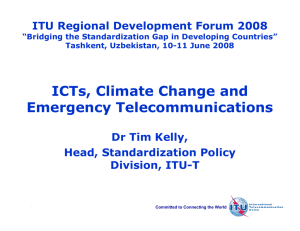B ackgrounder Emerging Telecommunication Policy and Regulatory Issues
advertisement
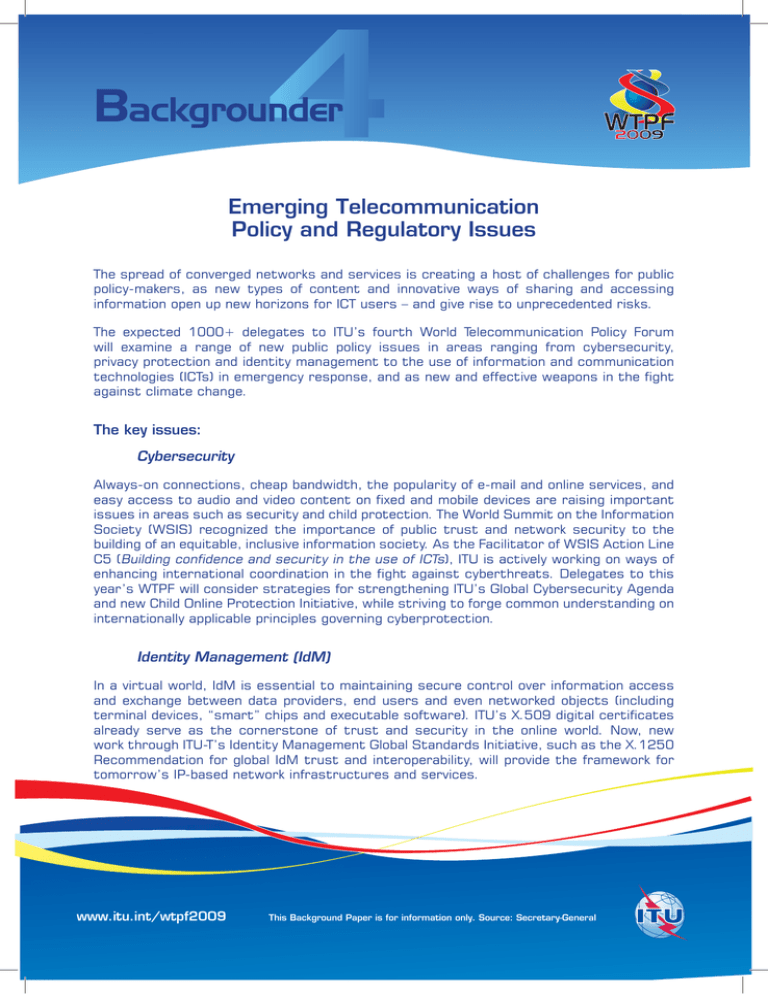
Backgrounder Emerging Telecommunication Policy and Regulatory Issues The spread of converged networks and services is creating a host of challenges for public policy-makers, as new types of content and innovative ways of sharing and accessing information open up new horizons for ICT users – and give rise to unprecedented risks. The expected 1000+ delegates to ITU’s fourth World Telecommunication Policy Forum will examine a range of new public policy issues in areas ranging from cybersecurity, privacy protection and identity management to the use of information and communication technologies (ICTs) in emergency response, and as new and effective weapons in the fight against climate change. The key issues: Cybersecurity Always-on connections, cheap bandwidth, the popularity of e-mail and online services, and easy access to audio and video content on fixed and mobile devices are raising important issues in areas such as security and child protection. The World Summit on the Information Society (WSIS) recognized the importance of public trust and network security to the building of an equitable, inclusive information society. As the Facilitator of WSIS Action Line C5 (Building confidence and security in the use of ICTs), ITU is actively working on ways of enhancing international coordination in the fight against cyberthreats. Delegates to this year’s WTPF will consider strategies for strengthening ITU’s Global Cybersecurity Agenda and new Child Online Protection Initiative, while striving to forge common understanding on internationally applicable principles governing cyberprotection. Identity Management (IdM) In a virtual world, IdM is essential to maintaining secure control over information access and exchange between data providers, end users and even networked objects (including terminal devices, “smart” chips and executable software). ITU’s X.509 digital certificates already serve as the cornerstone of trust and security in the online world. Now, new work through ITU-T’s Identity Management Global Standards Initiative, such as the X.1250 Recommendation for global IdM trust and interoperability, will provide the framework for tomorrow’s IP-based network infrastructures and services. www.itu.int/wtpf2009 This Background Paper is for information only. Source: Secretary-General Personal privacy and data protection Data protection is all too often implemented as an afterthought, once networks and services have been deployed. But with security an increasingly pressing issue, many are calling for data protection features to be built into technologies from their inception. WTPF delegates will consider how coordinated efforts at the global, regional and national levels can help foster trust in networks, through innovative technical, market and organizational mechanisms. ICTs and climate change In their manufacture, use and disposal, ICTs contribute around 2.5-3% of global greenhouse gas emissions. But while they are part of the problem, ICTs have the potential to be a major part of the solution, through more energy-efficient products and systems and active monitoring of key climatic variables. By enabling online content delivery, ICTs can also help reduce the need for raw materials, the impact of manufacturing, and the emissions resulting from physical distribution. Advances in videoconferencing technologies (many of which rely on ITU-developed standards, such as H.264) mean ICTs can increasingly replace corporate travel, while online collaboration tools now support effective, cost-efficient tele commuting. Emergency response ICTs already play a vital role in disaster response, providing the crucial links that help authorities keep people informed and coordinate aid activities in times of emergency. ITU has long been a major proponent of ICTs in emergency response, and was instrumental in brokering the 1998 Tampere Convention on cross-border deployment of wireless systems for disaster relief. Now, the Action Plan forged at the World Summit on the Information Society calls for the more widespread deployment of ICT-based monitoring systems to help predict, track and limit the impact of natural and man-made disasters, particularly in the developing world. This year’s Forum will examine the collaborative actions needed to ensure standards-based, all-media, all-hazards public warning systems become a core infrastructure component available to all communities worldwide. International Telecommunication Union Place des Nations CH-1211 Geneva 20 – Switzerland
